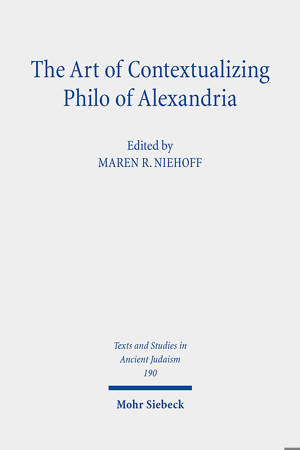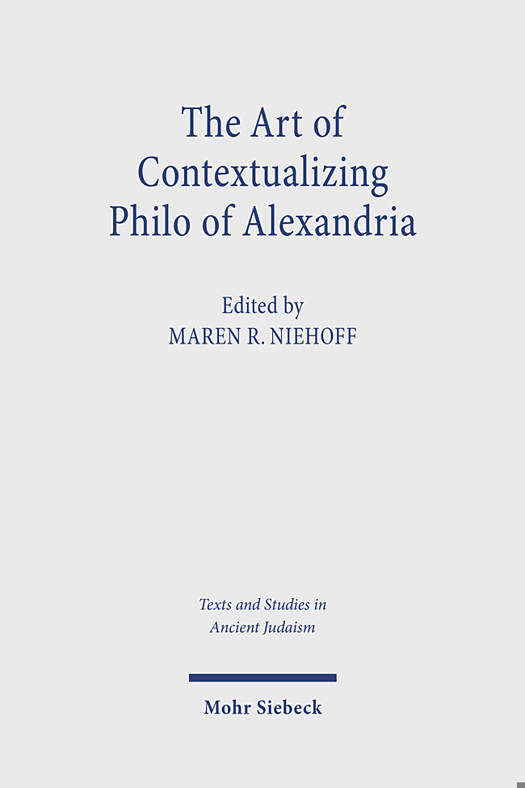
- Retrait gratuit dans votre magasin Club
- 7.000.000 titres dans notre catalogue
- Payer en toute sécurité
- Toujours un magasin près de chez vous
- Retrait gratuit dans votre magasin Club
- 7.000.0000 titres dans notre catalogue
- Payer en toute sécurité
- Toujours un magasin près de chez vous
The Art of Contextualizing Philo of Alexandria
Livre relié | Anglais | Texte und Studien zum Antiken Judentum / Texts and Studies in Ancient Judaism TSAJ | n° 190
161,95 €
+ 323 points
Description
The present collection of articles revisits the question of Philo's contexts in the wake of Maren Niehoff's Philo of Alexandria. An Intellectual Biography (New Haven, 2018/translation Tubingen 2019), which argues for the first time that Philo's diplomatic activities in 38 CE had a significant impact on his career and transformed him from a Bible exegete addressing Alexandrian audiences to a Roman philosopher. In the articles gathered here, the contributors further discuss these insights and adopt new hermeneutic frameworks to contextualize Philo's writings. In the first and largest section of the collection, Philo's participation in Roman discourses, including his engagement with ideas advocated by Cicero, Valerius Maximus, and Musonius, as well as his hitherto-overlooked Cynic tendencies, are studied. One essay furthermore treats Philo as an exponent of Alexandrian Platonism in Roman circles and another as a diplomat with close ties to the imperial administration who may have noticed the emergence of Christ-believers in the Jewish community of Rome. In the second section of this collection, the contributors focus on Philo in relation to the New Testament. Two of the contributions apply a triangular perspective, taking Philo as a benchmark for Romanization, which illuminates texts such as Acts and the Letter to the Hebrews. Two others respectively investigate Philo's hagiographical style of biography in view of the Gospel of Luke and his Platonically inspired Logos theory in view of the Gospel of John. The third section places Philo in the context of Greek literature and philosophy, one essay introducing ecocriticism in relation to Roman politics and the other drawing attention to Philo as a unique witness to inner Platonic debates which fully emerge in the second century CE.
Spécifications
Parties prenantes
- Editeur:
Contenu
- Nombre de pages :
- 378
- Langue:
- Anglais
- Collection :
- Tome:
- n° 190
Caractéristiques
- EAN:
- 9783161640780
- Date de parution :
- 01-01-25
- Format:
- Livre relié
- Format numérique:
- Genaaid
- Dimensions :
- 241 mm x 165 mm
- Poids :
- 893 g

Les avis
Nous publions uniquement les avis qui respectent les conditions requises. Consultez nos conditions pour les avis.





